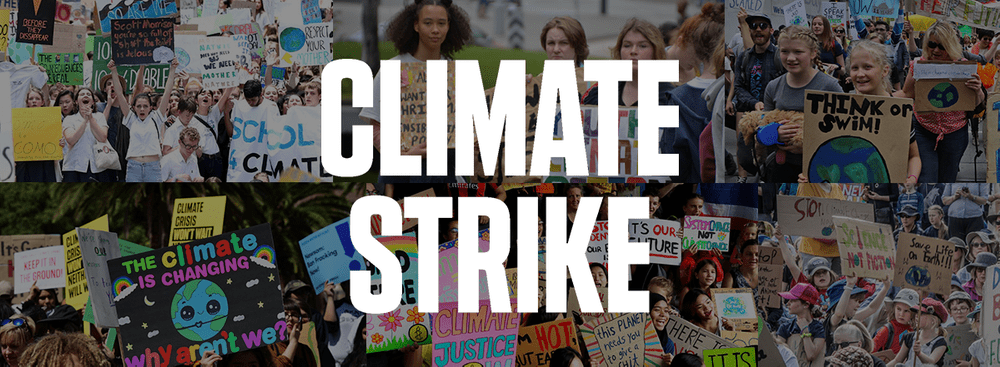Since 2013, Collins Dictionary has annually released a short list of significant words used throughout the year. Out of this, a group made-up of lexicographers and editors choos the Word Of The Year from the list. This year the noun ‘‘climate strike’’, defined as ‘a form of protest in which people absent themselves from education or work in order to join demonstrations demanding action to counter climate change’, has been picked due to its widespread popularity over the last few years. The word was first recorded in 2015 when a strike took place during the United Nations Climate Change Conference in Paris, the noun has seen a four-fold increase in its use since.
The Dictionary attributes the spreading of the word to Greta Thunberg, a climate change activist, and David Attenborough’s documentary Blue Planet II. However, with growing climate change protests all over the world, notably the Fridays for Future movement, it should not be suprising that the term has become so popular. The noun has been used 100 times more this year than in 2018.

The other words that have been shortlisted this year are:
‘‘Bopo’’ (or ‘‘BoPo’’), short for body positivity: a movement which encourages people to feel positive about the appearance of their bodies
‘‘Cancel’’: the action of publicly ceasing to acknowledge a person or company in order to disapprove of their actions or opinions, especially on social media
‘‘Double down’’: the reinforcing of one’s commitment despite opposition or risk
‘‘Entryist’’: a person joining a political party with the intentions of changing its principles and policies
‘‘Hopepunk’’: a literary and artistic movement that celebrates the pursuits of positive aims in the face of adversity
‘‘Nonbinary’’ (or ‘‘non-binary’’): a person who does not identify as being male or female, heterosexual or homosexual
‘‘Rewilding’’: the action of returning areas of land to a wild state and the reintroduction of animal species into those areas
Over time, the shortlist has seen a shift from being social media centred to including more political terms, such as ‘‘Brexit’’ in 2016 and ‘‘fake news’’ in 2017. Moreover, the trend for environmental consciousness continues as last year the adjective ‘‘single-use’’, referring to an item that is meant to be used only once, has found its place at the top of the list. This year, two terms relating to the environment have been put in the spotlight: Word Of The Year ‘‘climate strike’’, and the noun ‘‘rewilding’’. Thus, by looking at the shortlists it is safe to say that over the last few years politics have shaped the language we use every day. With this in mind, I wonder what events will have an impact on the English language next year?
Photo Credit: The Internet Protocol

